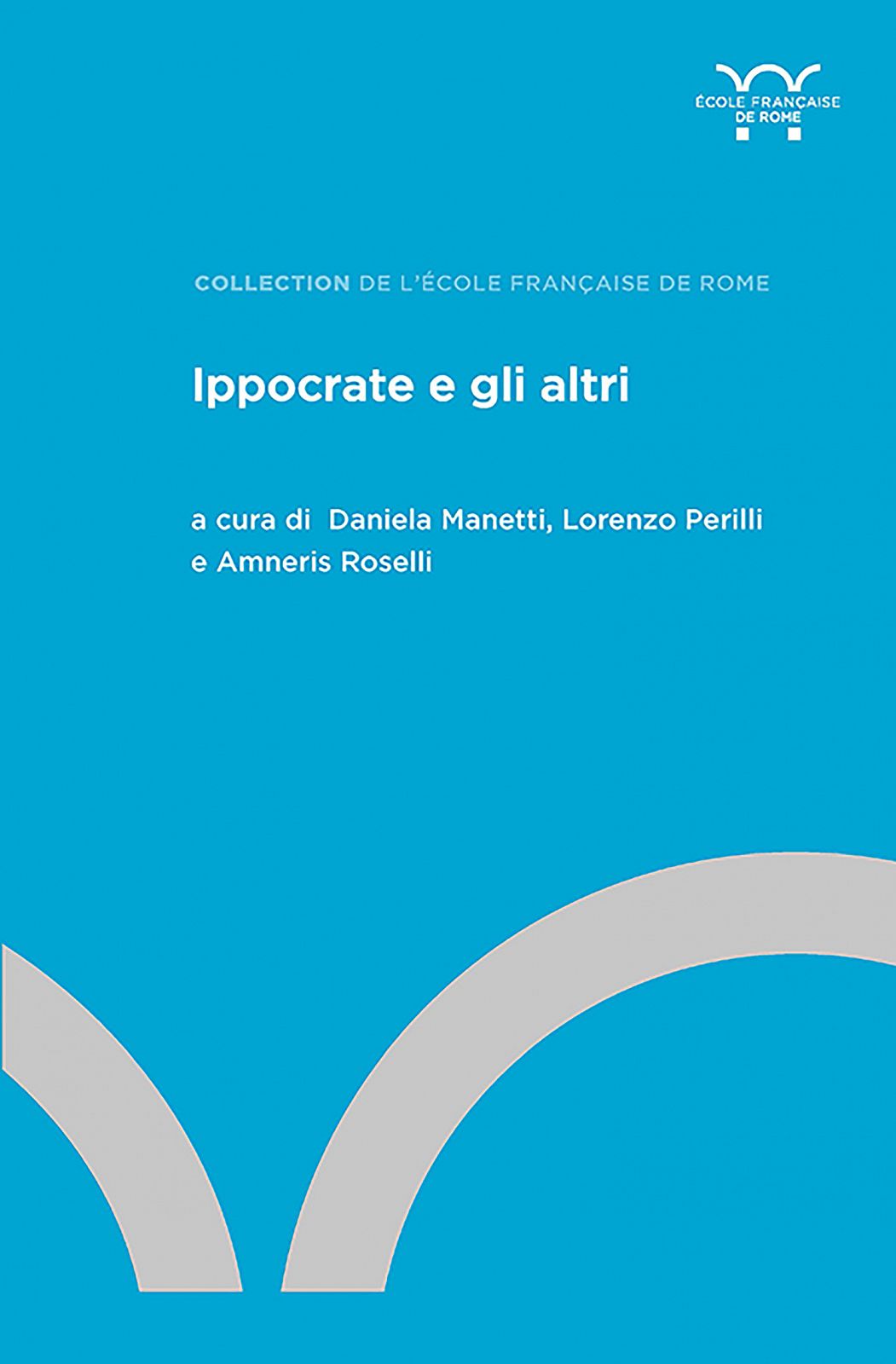Ippocrate e gli altri
ed. by Daniela Manetti, Lorenzo Perilli, and Amneris Roselli
Collection de l’École française de Rome
Investigating ‘Hippocrates’, his gestation, his vitality, means widening our gaze on what preceded and accompanied him, in Greece and in the neighbouring cultures, in a Mediterranean world that is a place of exchange of ideas in the form of literary works or ‘science’, of philosophy, religion and magic, of anthropology and politics, law, and economics, according to precise mechanisms of diffusion of texts, their geography, their consolidation in corpora and canons.
What we call ‘Hippocratic medicine’ thus deserves a place of honour for those who aim to understand the fertile environment of the 5th and 4th centuries BC, a ‘scientific’, historical, literary, and philosophical environment. And to be enlightened by a better knowledge of that medical paradigm is also the wider social and cultural context of the Greek world, a path that crossed the history of the West: the efforts that the Hippocratics made for the knowledge of the human body, of its structure, functioning, interconnection, and its relation with the external environment, had on the whole edifice of the ancient knowledge an impact that would be long-lasting, and would affect deeply.
From the 16th International Hippocratic Colloquium, a volume that reaffirms the liveliness and richness of Hippocratic studies.

